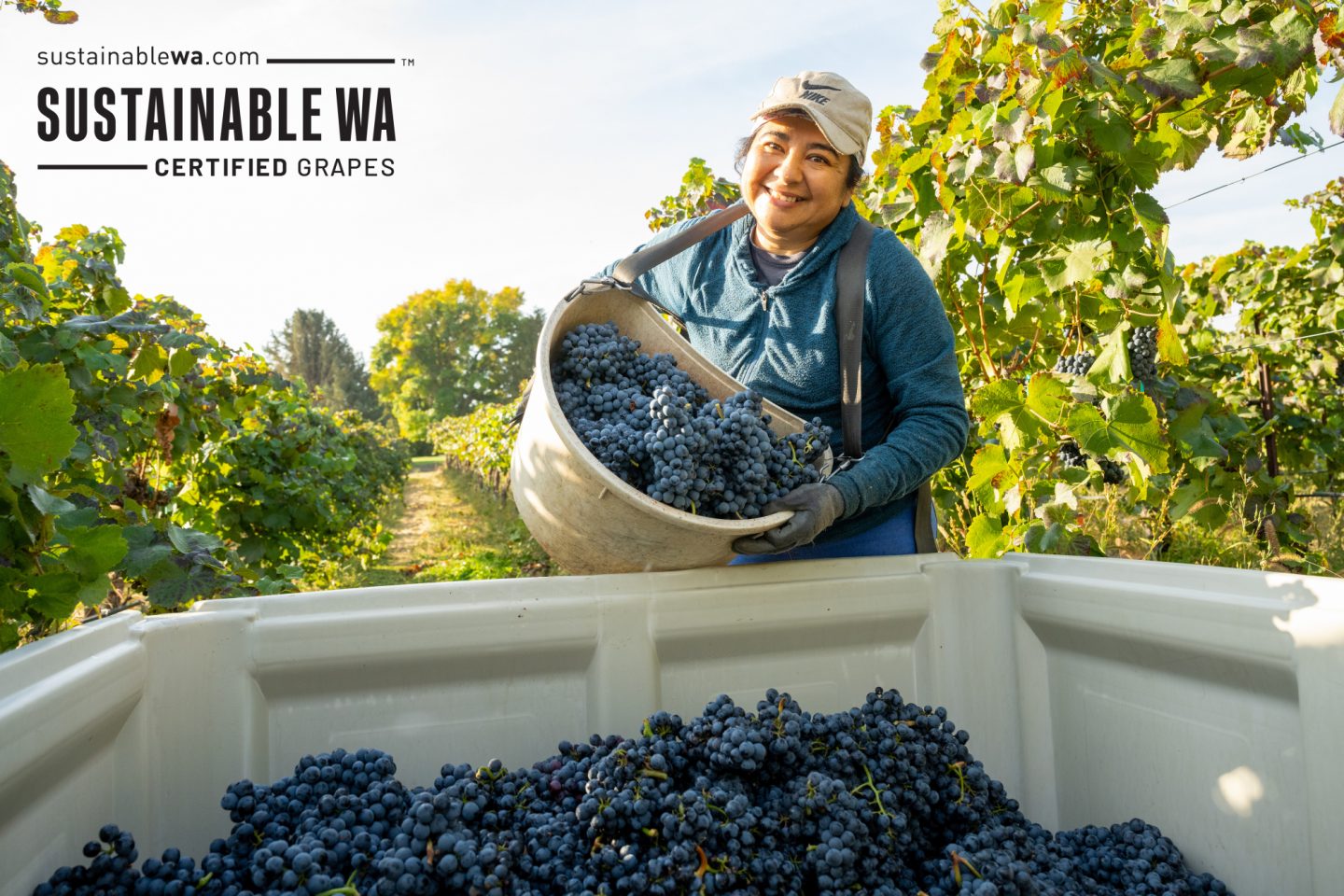Bottom Line Up Front
Sustainable WA is the first certified sustainability program built specifically for Washington vineyards.
All five of Kiona's estate vineyards, totaling over 272 planted acres, now qualify as "certified" under the Sustainable WA standard, starting with the 2022 vintage.

Rosa Trujillo with hand-picked Sustainable WA certified Lemberger grapes at the Kiona Estate vineyard in Washington state's Red Mountain AVA. Photo by Shawn Linehan.
Red Mountain is our home. We've staked our family's name and future on the success (and continued viability) of the region and the wines grown here. We are responsible to each other, the land we rely on, and the customers who trust us to be good.
Transparency and authenticity are more important than ever when it comes to selling high-end wine and high-end grapes. Discerning customers want to know they are making responsible choices and supporting holistic farms, growers, and producers.
For the last decade, we've fielded "sustainability" questions from wine drinkers, winemakers, wine writers, wine distributors, and wine buyers with some form of explanation that while we are not certified, we are indeed responsible farmers. That usually looked something like this:
- "We are not certified, but we do this, that, or the other."
- "We are not certified, but here's a link to a sustainability article we're mentioned in."
- "We are not certified, but take our word for it."
The 2022 rollout of the new Sustainable WA program afforded us the opportunity to formalize our commitment to sustainability. The scientifically-based, rigorous standard, built from the ground up specifically for Washington vineyards, covers the pillars of sustainability: environmentally sound, socially equitable, and economically viable.
To pass the audit and become certified, growers must meet 18 mandatory requirements and achieve at least 70% for each of the nine chapters (83 requirements overall). Kiona's score from our December 19th 2022 audit in parenthesis:
- Business Practices and Risk Management (required for completion of program but not scored by auditors)
- Human Resources (88.6%)
- Vineyard Establishment and Acquisition (88.8%)
- Viticulture (91.7%)
- Water Management (85.7%)
- Soil Management (85%)
- Pest Management (84.1%)
- Materials Handling (91.7%)
- Whole Farm Ecosystem and Community (85%)
For an overall average score of 87.58%, well surpassing the 70% threshold for certification.
The standard, for those curious, can be found here. This certification, combined with our World Class in Lighter Glass initiative and solar panel installation, provides a definitive answer to the question, "Are you sustainable?"
We are happy to be able to answer, at long last, "Yes."
Resources